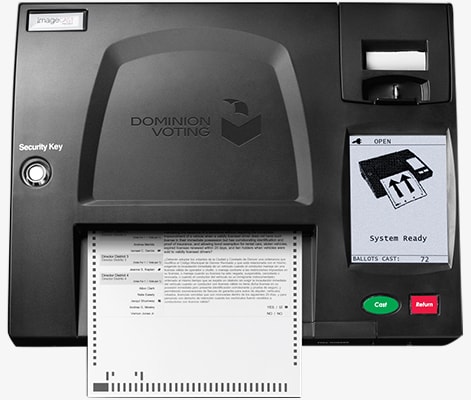

The vulnerabilities were discovered by Alex Halderman, a computer science professor at the University of Michigan who is an expert for plaintiffs in a federal lawsuit seeking to replace Georgia’s $138 million voting system with paper ballots filled out by hand. We have lots of mitigation, and that’s already built into our robust rules and laws.” “Some of the vulnerabilities are there, but they’re there in any system.

“There’s no way anybody can sit there in a real election environment and exploit any of these things,” Sterling said. Sterling said the flaws were only found after a federal judge allowed a computer scientist access to voting equipment and passwords.
Dominion imagecast code#
Georgia’s statewide voting system uses touchscreens to print out paper ballots, which are then fed into scanning machines that record votes.īecause scanning machines read bar codes printed on the paper ballots, voters would have no way of knowing whether a hack had changed the bar code so that it didn’t match the printed text of their choices. In addition, hacks could infect voting equipment remotely if election workers used USB drives to transfer data from computers connected to the internet to election computers. Malicious code could be spread if someone gained physical access to voting touchscreens or the election management system computers that program them. “Many of these mitigations, which are typically standard practice in jurisdictions where these devices are in use, are able to detect exploitation of these vulnerabilities and in many cases would prevent attempts entirely if diligently applied, making it very unlikely that a malicious actor could exploit these vulnerabilities to affect an election,” Easterly said. Currently, state law only calls for one race to be audited every two years after general elections.ĬISA Director Jen Easterly said the agency is working with election officials to address potential security deficiencies. The secretary of state’s office will review the recommendations, seek additional election audits and look for opportunities to improve election worker training, said Gabriel Sterling, chief operating officer for the secretary of state’s office.


 0 kommentar(er)
0 kommentar(er)
